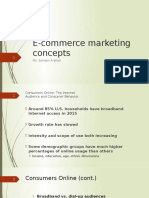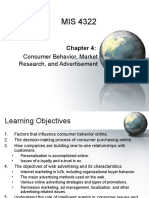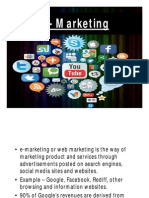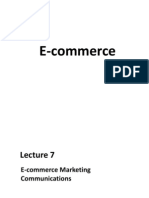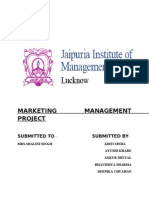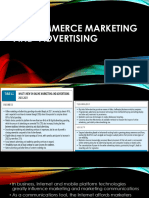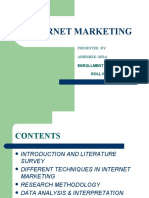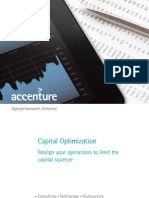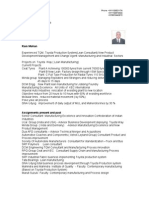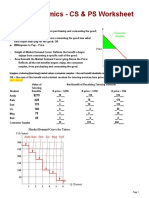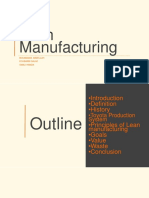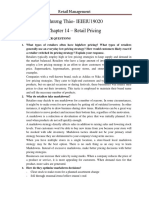0% found this document useful (0 votes)
5 views27 pagesModule 3 Lecture 1
The document outlines the concepts of e-business and e-marketing, emphasizing their definitions, differences, and the strategic processes involved in online marketing. It discusses the importance of an online value proposition, the elements of the marketing mix, and various online marketing strategies such as affiliate and viral marketing. Additionally, it addresses challenges in e-business, including online payment security, privacy issues, and the effectiveness of web site measurement metrics.
Uploaded by
SanviCopyright
© © All Rights Reserved
We take content rights seriously. If you suspect this is your content, claim it here.
Available Formats
Download as PDF, TXT or read online on Scribd
0% found this document useful (0 votes)
5 views27 pagesModule 3 Lecture 1
The document outlines the concepts of e-business and e-marketing, emphasizing their definitions, differences, and the strategic processes involved in online marketing. It discusses the importance of an online value proposition, the elements of the marketing mix, and various online marketing strategies such as affiliate and viral marketing. Additionally, it addresses challenges in e-business, including online payment security, privacy issues, and the effectiveness of web site measurement metrics.
Uploaded by
SanviCopyright
© © All Rights Reserved
We take content rights seriously. If you suspect this is your content, claim it here.
Available Formats
Download as PDF, TXT or read online on Scribd
/ 27



